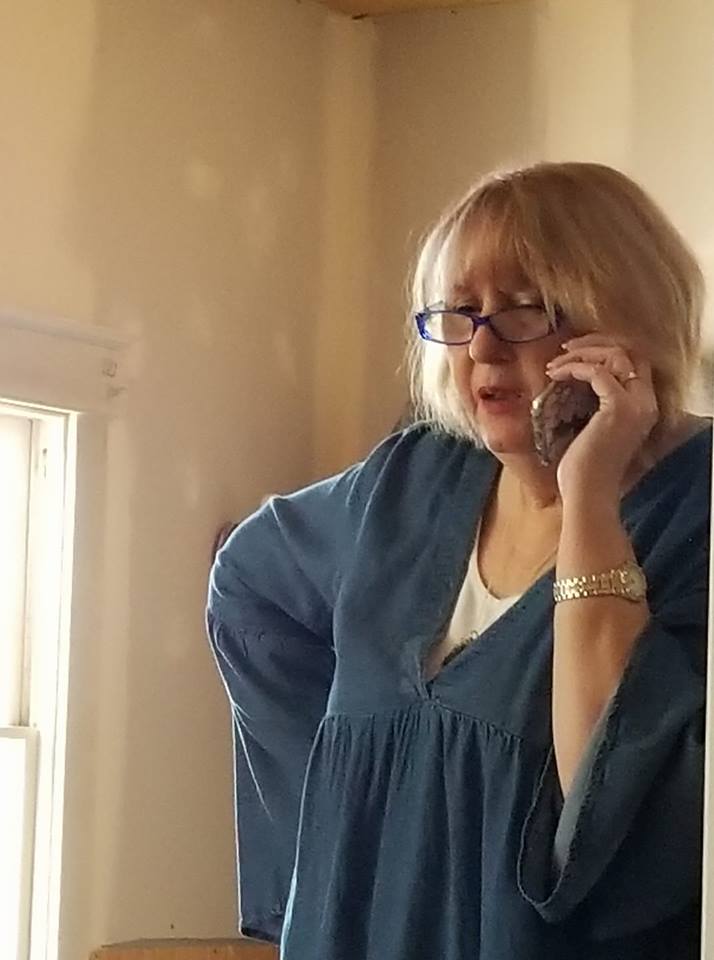 Metaphysical Approach To Recovery Personality disorders are characterized by the behavior of the individual.
By Christa Lore Urban
My opinion is BPD is not an illness but a dysfunction related to environment, upbringing and spiritual disconnection. This is a disorder that is not treated with medication, our first clue that recovery will require the participation of the individual. An individual must become aware that their behavior is dysfunctional and want to take the steps to change it. Receiving diagnosis is often difficult. It is often the dramatic behavior that results in mental health hospitalization where the individual is confirmed BPD. Many individuals that are in Mental Health institutions are noted to have BPD among their diagnoses
BPD rarely stands alone. The people with this personality disorder often have other mental health diagnoses. Common co-morbidities include, substance abuse, eating disorders, anxiety disorders and over half the population with BPD suffers from Major Depressive disorder. When BPD and depression co-occur antidepressants are not effective until the BPD disorder symptoms are handled. There is not a pill to fix it thus counseling and spiritual work are the path to healing this personality problem.
People with BPD often have highly unstable patterns of social relationships. While they can develop intense attachments, their attitudes toward family, friends, and loved ones may suddenly shift from great love to intense anger and dislike. They live in constant fear of rejection and react dramatically to even simple things like a change of plans or being home while their partner takes a business trip. I love you, I hate you, I will kill myself if you leave me are part of the dysfunctional repertoire of the Borderline. They live in constant fear of abandonment and will attempt to manipulate situations to be in control and remain the center of attention. Narcissistic Personality can also accompany this disorder.
People with BPD have a distorted sense of self and can lead to frequent changes in long-term goals, career plans, jobs, friendships, gender identity, and values. Sometimes people with BPD view themselves as fundamentally bad or unworthy. They may feel unfairly misunderstood or mistreated, bored, empty, and have little idea of who they are. Such symptoms are most acute when people with BPD feel isolated and lacking in social support and may result in frantic efforts to avoid being alone by acting out; i.e. impulsive behavior or suicide attempts. Suicide attempts and gestures must be taken seriously, even though a “cry for attention” from the BPD people completes suicide without the intention to die. Forcing the individual to accept the consequences (forced hospitalization in a crisis center) may be what is needed to move the person to healing and acceptance that they are dysfunctional and their behavior pattern is not acceptable.
These behaviors can develop in individuals that have suffered abuse, sexual abuse, trauma and abandonment, or perceived abandonment by parents. The environment and upbringing are part of personality development. If someone is raised in a family that is dysfunctional they will learn those forms of behavior.
Listed below from the DSMIV is the diagnostic criteria for diagnosis at least 5 of these must be present although with several and severe suffering of the individual a diagnosis may also be made.
1. Frantic efforts to avoid real or imagined abandonment.
2. Pattern of unstable and intense interpersonal relationships characterized by alternating between extremes of idealization and devaluation.
3. Identity disturbance: markedly and persistently unstable self-image or sense of self.
4. Impulsivity in at least two areas that are potentially self-damaging (e.g. spending, sex, substance abuse, reckless driving, binge eating).
5. Recurrent suicidal behavior, gestures or threats, or self-mutilating behavior.
6. Affective instability due to a marked reactivity of mood.
7. Chronic feelings of emptiness.
8. Inappropriate intense anger or difficulty controlling anger.
9. Transient, stress related paranoid ideation or severe dissociative symptoms.
So what is the answer to solving this behavioral disorder? First the individual must become aware that their behavior is the problem and they must accept this problem. This personality type is very manipulative and affects everyone around them. The family members need to stop being manipulated by the behavior and intervene.
Anxiety is a huge component of this disorder. Controlling the anxiety is the first step to allowing rational thought and behavior patterns to be learned. Learning anxiety control techniques such and yoga breathing and meditation are key. Being able to remove anti-anxiety medication is important. These drugs are addicting and do not control anxiety, they suppress the brain and the problems in behavior are not solved just suppressed until the pill wears off. A safe and suitable remedy during the healing process is Bach Flower Rescue Remedy. I recommend adding a few drops to a bottle of water and using throughout the day as someone weans off of medications such as Xanax, Ativan or Klonopin. During acute episodes of anxiety or panic using the Bach Rescue remedy undiluted directly in the mouth will alleviate the anxiety.
The individual must work with a counselor, Psychological and Spiritual Counseling which are essential to recovery. I say recovery but it is truly a life change that needs to be made. Healing from the trauma or abuse and being raised in a dysfunctional home takes time. The combination of behavioral therapy and recovery methods must be multidimensional. If the person also has substance abuse or other addictions those also must be treated. We are total beings; Mind, Body and Spirit. One is not dysfunctional without affecting the other. As in the 12 step programs for addiction, someone suffering from BPD must learn to accept a higher power, God, the Universe, it doesn’t matter but reconnecting to some type of spiritual practice is important. Prayer, meditation as well as physical reconnection as in yoga or tai chi are important.
Forgiveness work is essential. The only way to break the chains to abuse and trauma is to forgive the perpetrator; this does not mean forget that bad things happened. Forgiveness includes forgiving yourself, letting go of any shaming or blaming behavior.
A simple exercise in forgiveness is just to say, “I forgive Mr. X for abusing me. I let this go to the universe and free myself. I forgive myself for holding on to this. I accept and love myself and let the abuse become part of my past.”
Metaphysical Approach To Recovery Personality disorders are characterized by the behavior of the individual.
By Christa Lore Urban
My opinion is BPD is not an illness but a dysfunction related to environment, upbringing and spiritual disconnection. This is a disorder that is not treated with medication, our first clue that recovery will require the participation of the individual. An individual must become aware that their behavior is dysfunctional and want to take the steps to change it. Receiving diagnosis is often difficult. It is often the dramatic behavior that results in mental health hospitalization where the individual is confirmed BPD. Many individuals that are in Mental Health institutions are noted to have BPD among their diagnoses
BPD rarely stands alone. The people with this personality disorder often have other mental health diagnoses. Common co-morbidities include, substance abuse, eating disorders, anxiety disorders and over half the population with BPD suffers from Major Depressive disorder. When BPD and depression co-occur antidepressants are not effective until the BPD disorder symptoms are handled. There is not a pill to fix it thus counseling and spiritual work are the path to healing this personality problem.
People with BPD often have highly unstable patterns of social relationships. While they can develop intense attachments, their attitudes toward family, friends, and loved ones may suddenly shift from great love to intense anger and dislike. They live in constant fear of rejection and react dramatically to even simple things like a change of plans or being home while their partner takes a business trip. I love you, I hate you, I will kill myself if you leave me are part of the dysfunctional repertoire of the Borderline. They live in constant fear of abandonment and will attempt to manipulate situations to be in control and remain the center of attention. Narcissistic Personality can also accompany this disorder.
People with BPD have a distorted sense of self and can lead to frequent changes in long-term goals, career plans, jobs, friendships, gender identity, and values. Sometimes people with BPD view themselves as fundamentally bad or unworthy. They may feel unfairly misunderstood or mistreated, bored, empty, and have little idea of who they are. Such symptoms are most acute when people with BPD feel isolated and lacking in social support and may result in frantic efforts to avoid being alone by acting out; i.e. impulsive behavior or suicide attempts. Suicide attempts and gestures must be taken seriously, even though a “cry for attention” from the BPD people completes suicide without the intention to die. Forcing the individual to accept the consequences (forced hospitalization in a crisis center) may be what is needed to move the person to healing and acceptance that they are dysfunctional and their behavior pattern is not acceptable.
These behaviors can develop in individuals that have suffered abuse, sexual abuse, trauma and abandonment, or perceived abandonment by parents. The environment and upbringing are part of personality development. If someone is raised in a family that is dysfunctional they will learn those forms of behavior.
Listed below from the DSMIV is the diagnostic criteria for diagnosis at least 5 of these must be present although with several and severe suffering of the individual a diagnosis may also be made.
1. Frantic efforts to avoid real or imagined abandonment.
2. Pattern of unstable and intense interpersonal relationships characterized by alternating between extremes of idealization and devaluation.
3. Identity disturbance: markedly and persistently unstable self-image or sense of self.
4. Impulsivity in at least two areas that are potentially self-damaging (e.g. spending, sex, substance abuse, reckless driving, binge eating).
5. Recurrent suicidal behavior, gestures or threats, or self-mutilating behavior.
6. Affective instability due to a marked reactivity of mood.
7. Chronic feelings of emptiness.
8. Inappropriate intense anger or difficulty controlling anger.
9. Transient, stress related paranoid ideation or severe dissociative symptoms.
So what is the answer to solving this behavioral disorder? First the individual must become aware that their behavior is the problem and they must accept this problem. This personality type is very manipulative and affects everyone around them. The family members need to stop being manipulated by the behavior and intervene.
Anxiety is a huge component of this disorder. Controlling the anxiety is the first step to allowing rational thought and behavior patterns to be learned. Learning anxiety control techniques such and yoga breathing and meditation are key. Being able to remove anti-anxiety medication is important. These drugs are addicting and do not control anxiety, they suppress the brain and the problems in behavior are not solved just suppressed until the pill wears off. A safe and suitable remedy during the healing process is Bach Flower Rescue Remedy. I recommend adding a few drops to a bottle of water and using throughout the day as someone weans off of medications such as Xanax, Ativan or Klonopin. During acute episodes of anxiety or panic using the Bach Rescue remedy undiluted directly in the mouth will alleviate the anxiety.
The individual must work with a counselor, Psychological and Spiritual Counseling which are essential to recovery. I say recovery but it is truly a life change that needs to be made. Healing from the trauma or abuse and being raised in a dysfunctional home takes time. The combination of behavioral therapy and recovery methods must be multidimensional. If the person also has substance abuse or other addictions those also must be treated. We are total beings; Mind, Body and Spirit. One is not dysfunctional without affecting the other. As in the 12 step programs for addiction, someone suffering from BPD must learn to accept a higher power, God, the Universe, it doesn’t matter but reconnecting to some type of spiritual practice is important. Prayer, meditation as well as physical reconnection as in yoga or tai chi are important.
Forgiveness work is essential. The only way to break the chains to abuse and trauma is to forgive the perpetrator; this does not mean forget that bad things happened. Forgiveness includes forgiving yourself, letting go of any shaming or blaming behavior.
A simple exercise in forgiveness is just to say, “I forgive Mr. X for abusing me. I let this go to the universe and free myself. I forgive myself for holding on to this. I accept and love myself and let the abuse become part of my past.”
 This is not easy for some and may need to be repeated frequently until it feels real. A visualization exercise to set yourself free is also good.
See the strings that connect to the bad situations or individuals. Take a pair of scissors and cut those strings. Saying I release myself from this (trauma, situation or person) and cut the strings. Say, “I am free, I am blessed and this connection is no longer part of me.”
Personality disorders are the most difficult to treat in the medical model. The personality disorder needs the Body, Mind and Spirit approach. Creating a new and healthy personality is the goal. It took years to develop the dysfunctional personality so it will take time to heal and create the new one. If you or a family member is affected in this way, seek a Spiritual or Psychological Counselor that provides the needed therapy and support. Body work; massage and reflexology can help as well as Energy Healing Modalities, Reiki, Healing Hands, and EFT can provide healing on all levels and are very beneficial to someone trying to detox off of medications and alcohol. Prayer and meditation, developing a healthy Spiritual connection is also essential. Hypnosis and Regression therapies can also be helpful.
Finding a practitioner that you can have rapport with is very important. Counseling and healing BPD is difficult; these clients have issues with trust. They must trust their provider to make progress towards healing. Borderline Personality is a very complex problem. I hope that in this small article I have provided some answers that can assist to stop the Pendulum swing of the Borderline.
This is not easy for some and may need to be repeated frequently until it feels real. A visualization exercise to set yourself free is also good.
See the strings that connect to the bad situations or individuals. Take a pair of scissors and cut those strings. Saying I release myself from this (trauma, situation or person) and cut the strings. Say, “I am free, I am blessed and this connection is no longer part of me.”
Personality disorders are the most difficult to treat in the medical model. The personality disorder needs the Body, Mind and Spirit approach. Creating a new and healthy personality is the goal. It took years to develop the dysfunctional personality so it will take time to heal and create the new one. If you or a family member is affected in this way, seek a Spiritual or Psychological Counselor that provides the needed therapy and support. Body work; massage and reflexology can help as well as Energy Healing Modalities, Reiki, Healing Hands, and EFT can provide healing on all levels and are very beneficial to someone trying to detox off of medications and alcohol. Prayer and meditation, developing a healthy Spiritual connection is also essential. Hypnosis and Regression therapies can also be helpful.
Finding a practitioner that you can have rapport with is very important. Counseling and healing BPD is difficult; these clients have issues with trust. They must trust their provider to make progress towards healing. Borderline Personality is a very complex problem. I hope that in this small article I have provided some answers that can assist to stop the Pendulum swing of the Borderline.
Christa Lore Urban has been an informative and entertaining guest on CBS radio, Mixtalk and Blogtalk shows as well as Liquid Lunch Show, Streaming TV from Toronto. In 2011 she placed 5th in The International Psychic Challenge in Ukraine as seen on STB Television. She is a frequent contributor to several other Metaphysical Publications. For more information about Christa, visit her website: http://www.christaloreurban.com/Views:]]>


